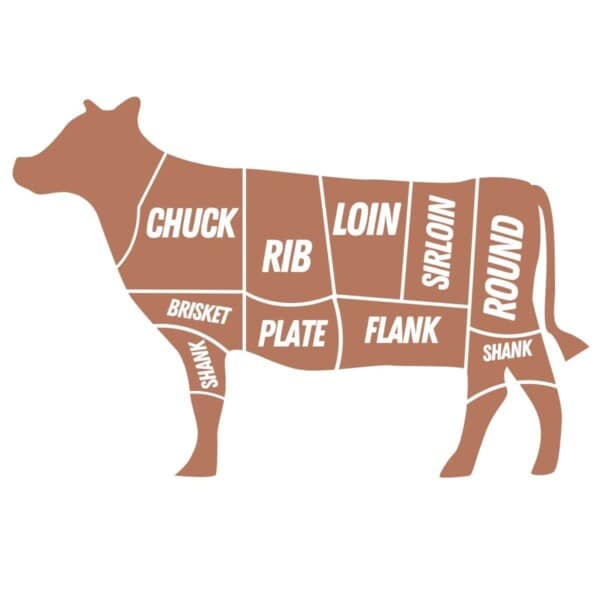This comprehensive guide to the nine main cuts of beef will help you decide what beef to buy at the grocery store and how to properly prepare it at home. Heading into the beef section can feel overwhelming, but this post will give you all the information and confidence to grab the perfect cut based on your menu.
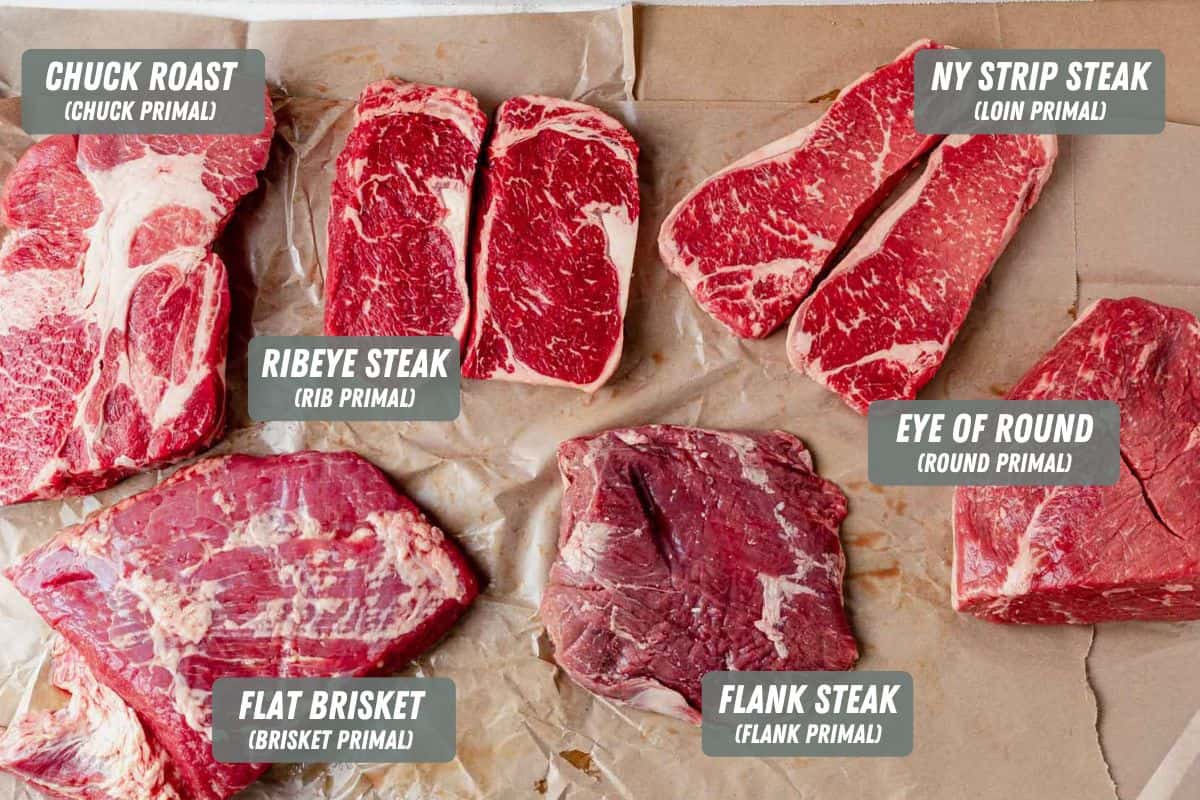
Table of Contents
No more wondering what each cut of beef is for and how to know the best way to cook each one. Head into the grocery store with confidence and use the proper technique to cook each one. Cook your beef perfectly with our guide to determining beef doneness.
Cuts of Beef Basics
The cow is broken up into 9 different cuts of beef. These are known as the primal cuts and are broken down twice before they reach the shelves and your home. Packers take the nine primal cuts and break them down into sub-primal cuts before shipping them to grocery stores. From there, local markets break them down into portion cuts to be purchased and cooked.
Primal Cuts > Sub-primal Cuts > Portion Cuts (what we see at the store)
The 9 Primal Cuts: Basics, Cooking Methods, and Recipes
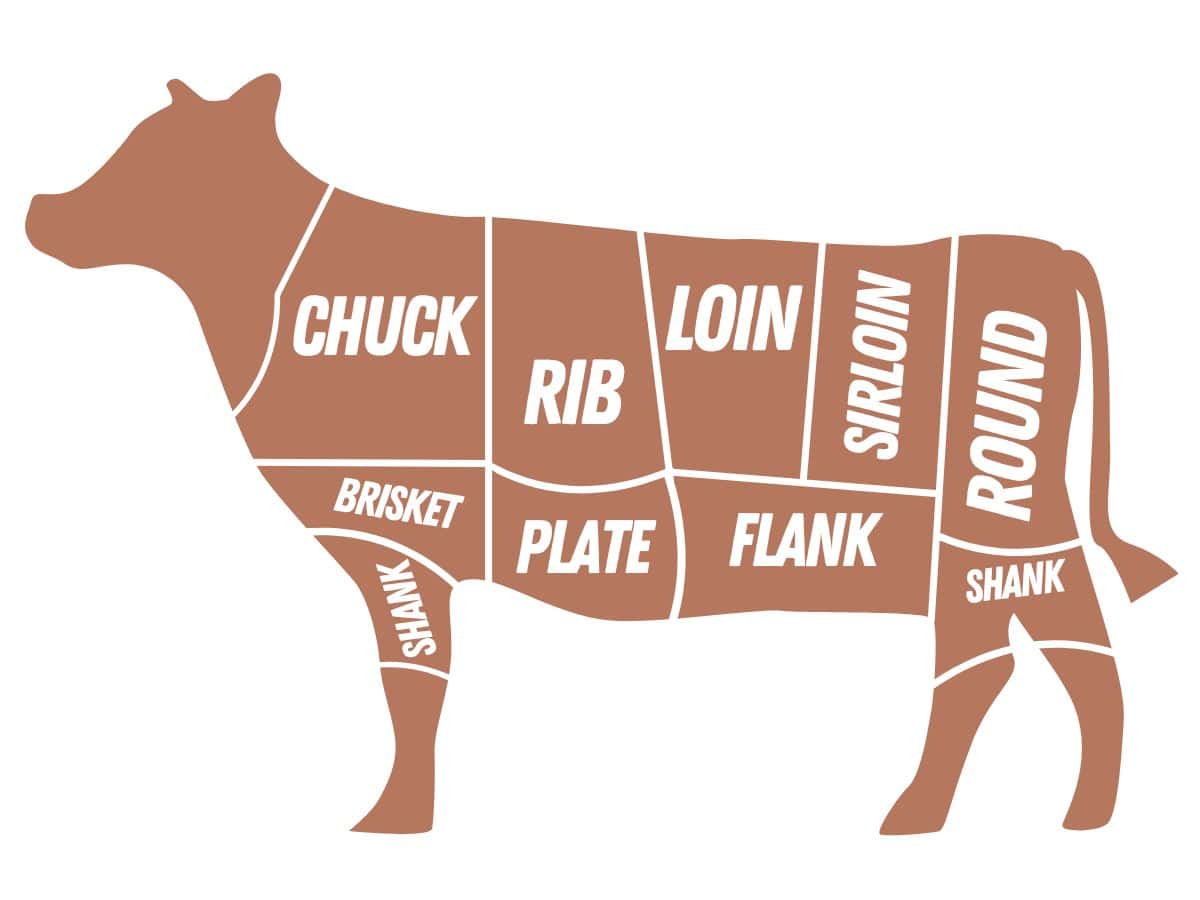
Here are the 9 primal cuts of the cow. Keep reading to learn more about where they come from, their flavor and texture, the most common portion cuts, cooking methods, and finally, recipes from that primal. View the cuts of beef graphic above to get an idea of where each primal is on the cow.
Chuck
This cut of beef comes from the lower neck and upper shoulder of the cow. It’s a very flavorful region and can be cut in many different ways, including roasts and steaks. It’s tough, but very flavorful because of all the connective tissue. This makes it an ideal choice for cooking methods that are low and slow including the slow cooker and braising.

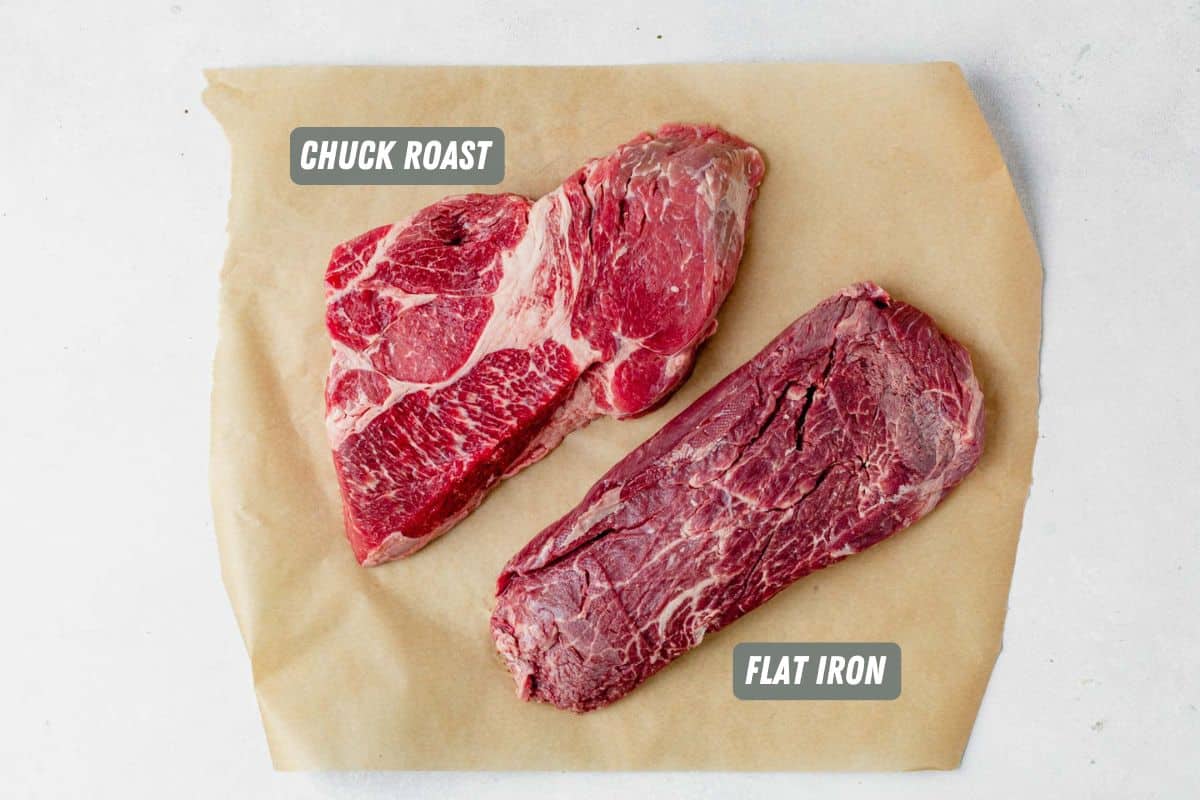
Most common portion cuts: the 7 bone roasts, ground chuck (for hamburgers), chuck short ribs, medallions, chuck pot roast (the most common), shoulder steak, flat-iron steak, and stew meat.
Cooking methods: this cut is especially good for slow cooking, pressure cooking, and braising, as well as grilling for the more tender cuts like a flat iron.
Beef Chuck Recipes
- Sweet potato beef stew
- Slow cooker beef ragu
- Instant Pot pot roast and potatoes
- Korean shredded beef tacos
- Country-style ribs
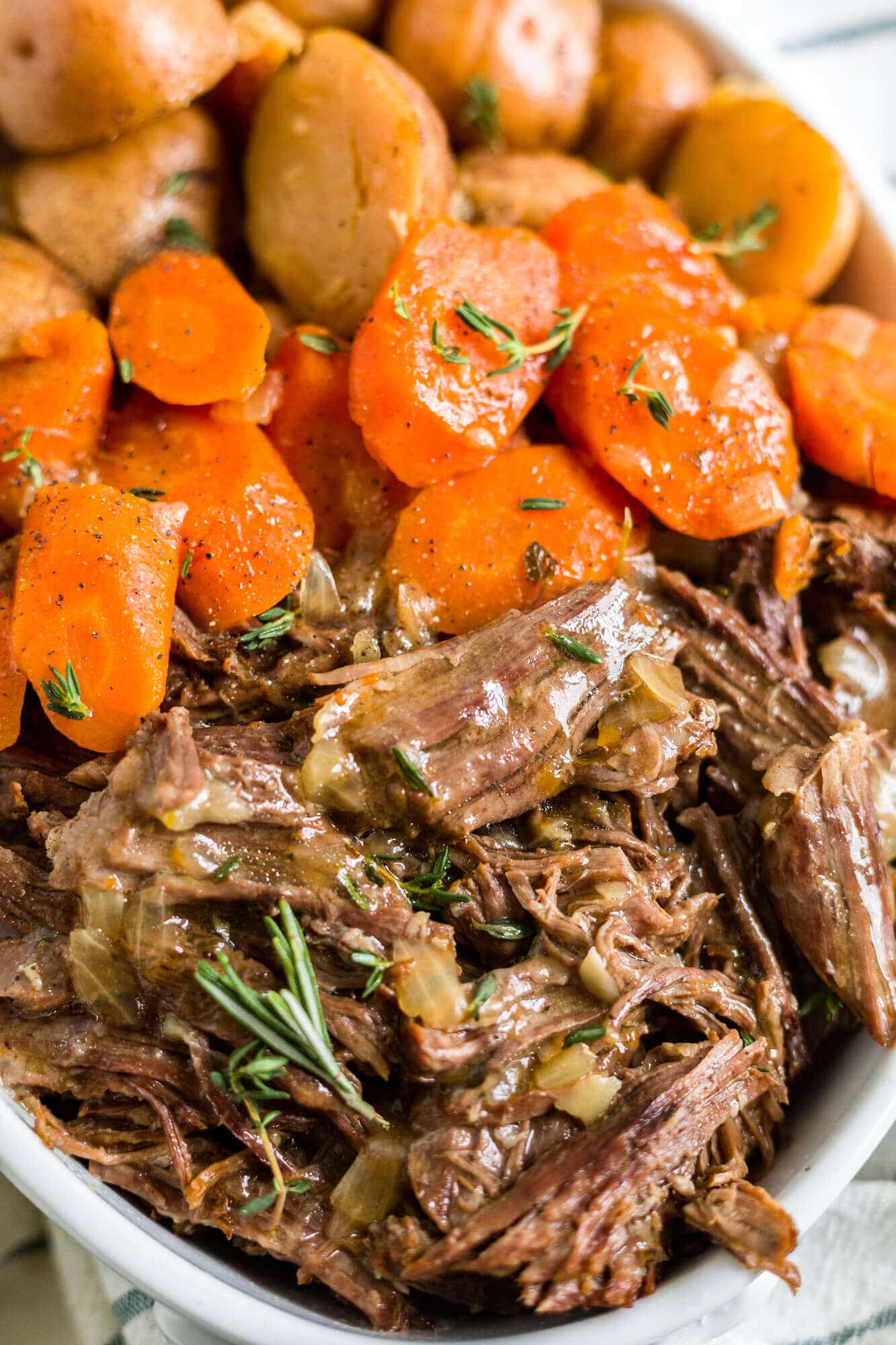
Brisket
This comes from the breastbone of the cow, just below the chuck. It’s essentially the pectoral (chest) of the cow. This is one of the most flavorful cuts because its generous fatty marbling, however, it can be tough because it’s used for movement. Because of those two characteristics, it needs to be cooked just right (low and slow).
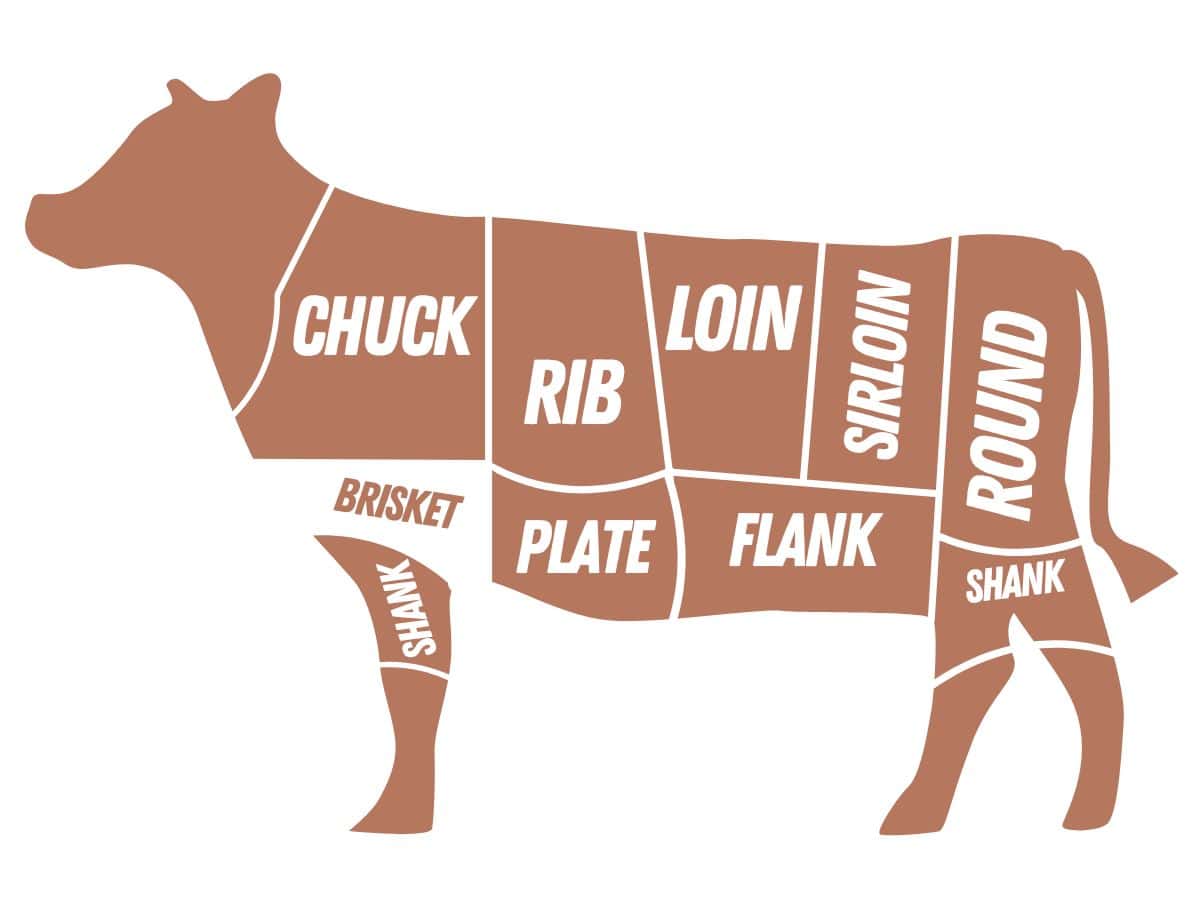
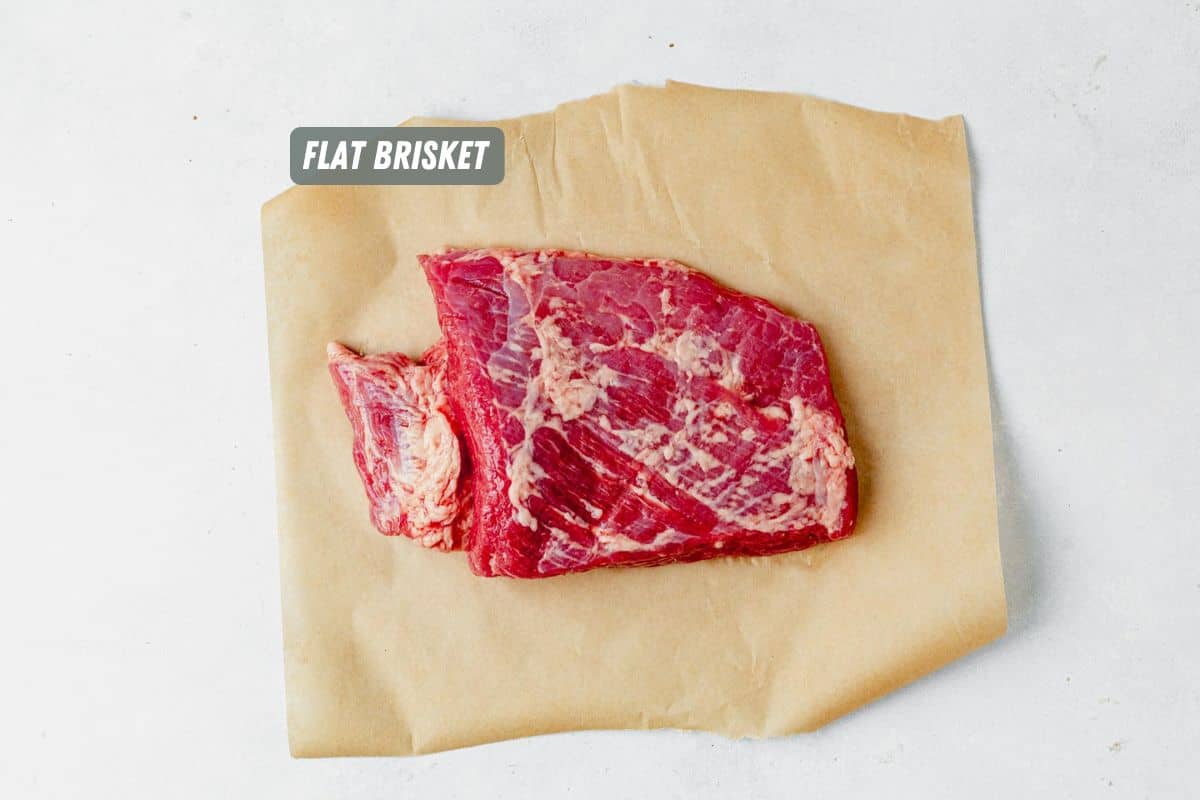
Most common portion cuts: brisket half flat (lean) and brisket point half.
Cooking methods: you need to cook this low and slow so it can break down and tenderize. Because of this, it’s a great cut to marinade and use in the slow cooker or smoke all day on the barbecue.
Brisket Recipes
Shank
The shank comes from the leg of the animal, specifically the thigh. This part of the animal is used extensively for movement, resulting in a very tough cut.
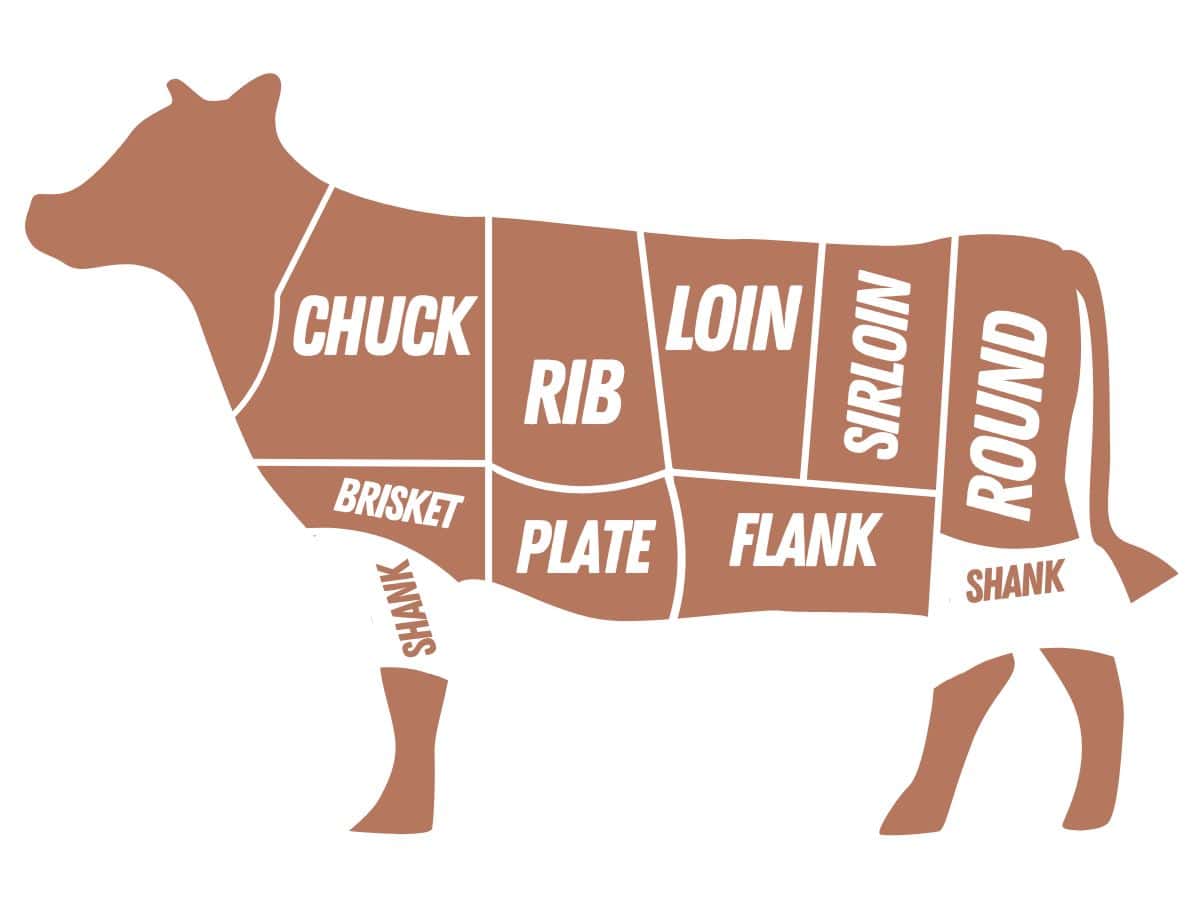
Most common portion cuts: It’s typically cut into a cross-section called shank cross-cuts. Shank steaks are another common cut from this primal. It’s not very popular, so it’s not always easy to find in grocery stores.
Cooking methods: it’s often dry and tough so cooking it slowly in a cooking liquid (aka braising), is best. You can also find this cut used for stew meat and the extra popular Italian dish, Osso Buco.
Shank Recipes
Rib
This primal cut is located in the front section under the backbone, including ribs 6-12 (the other ribs are grouped with chuck and short plate). It’s mainly used for support, and as a result, often very tender.
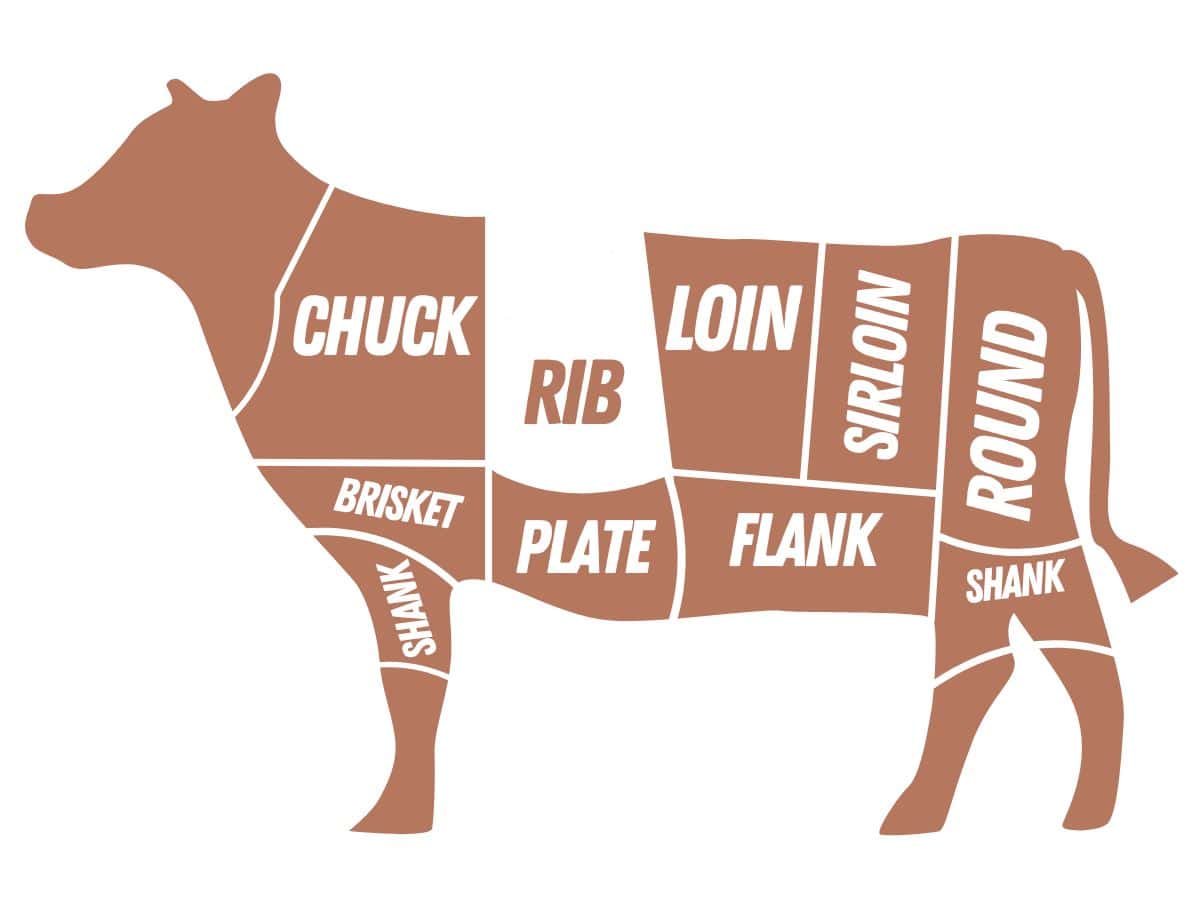
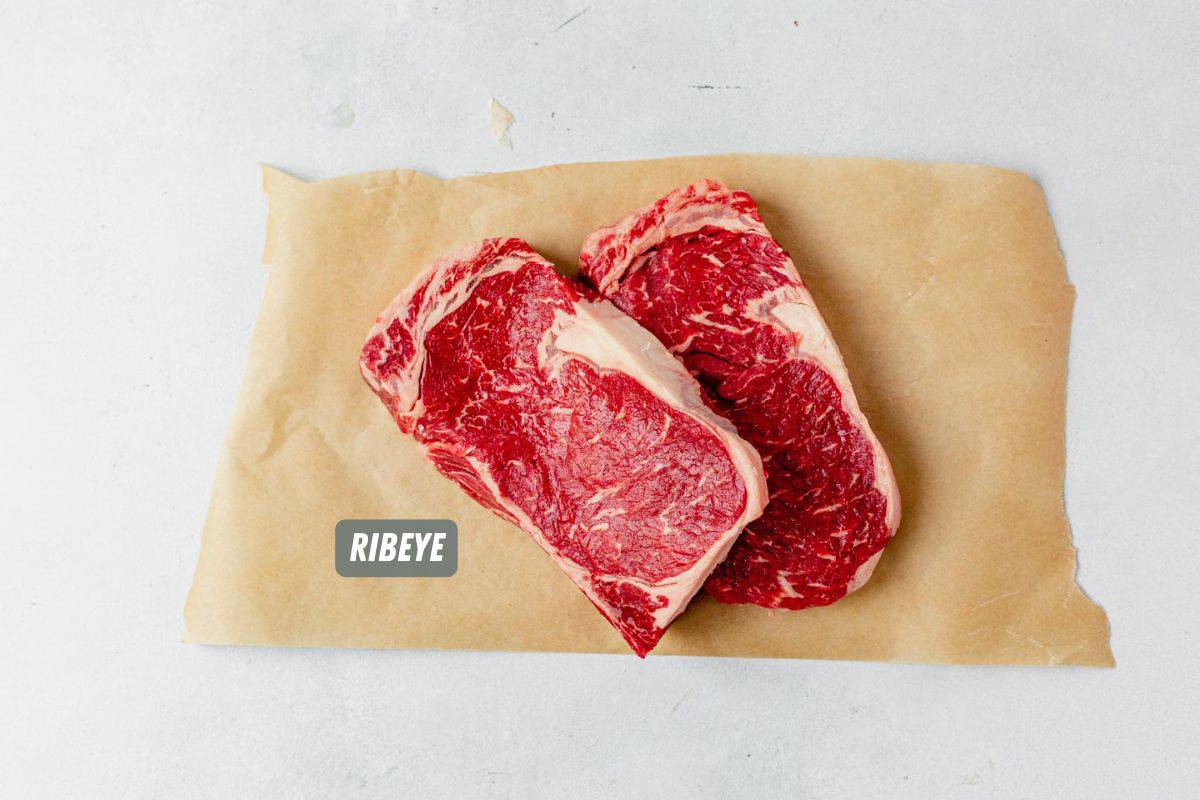
Most common portion cuts: ribeye roast (great for holidays!), ribeye steaks (boneless and bone-in), short ribs, tomahawk steak, and cowboy steak.
Cooking methods: they’re already tender, so they do well with many cooking methods including roasting, sauteing, pan-frying
Beef Rib Recipes
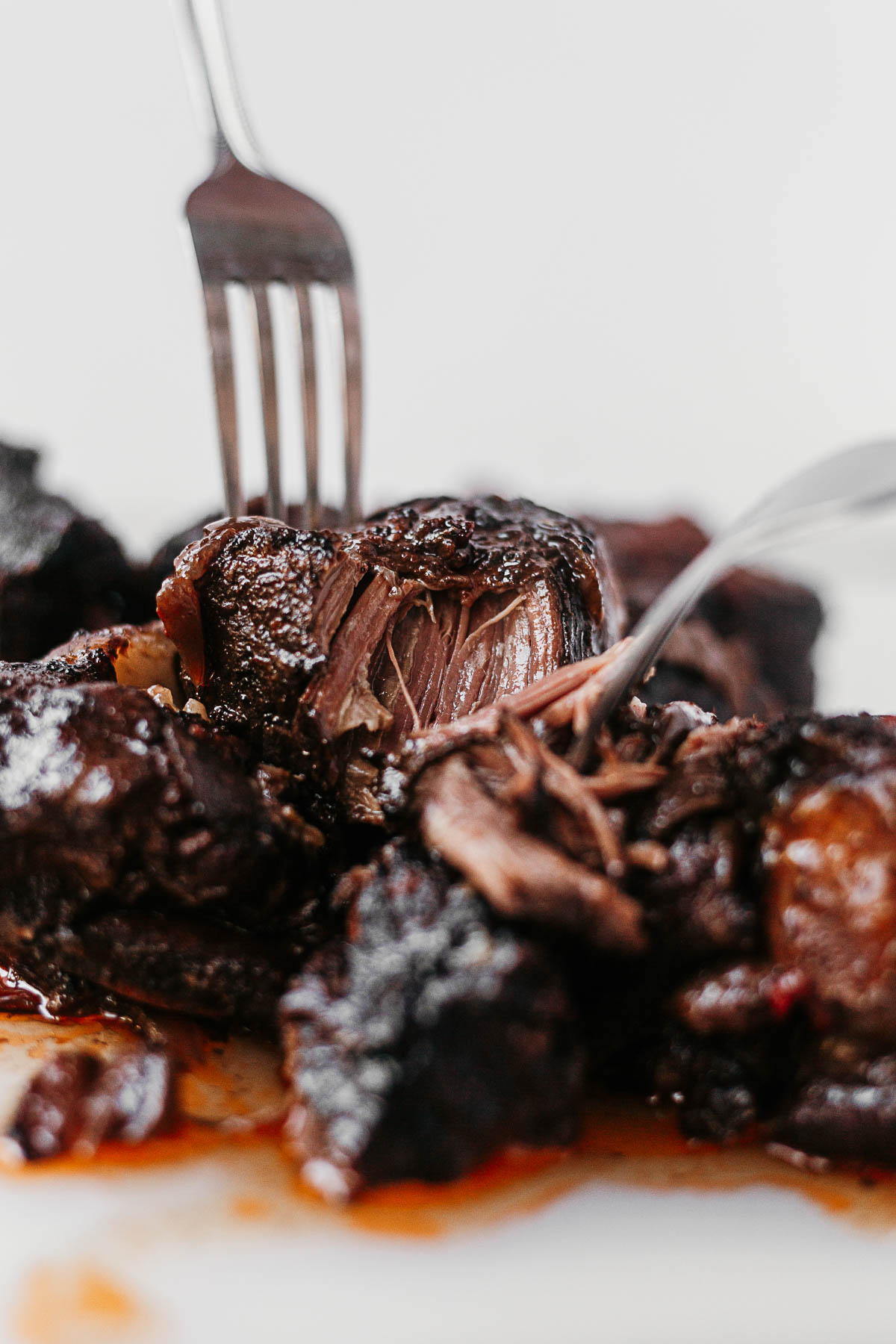
Plate
This cut is right under the rib and next to the brisket (near the belly). It’s known for its high-fat content and includes the ever-popular short ribs, as well as hanger steak and skirt steak.

Cooking methods: It’s a very thin and flavorful cut of meat, which allows you to cook it quickly over high heat, making it a great cut to grill.
Most common portion cuts: short ribs, hanger steak, and skirt steak.
Beef Plate Recipes
- Braised Short Rib Pasta
- Sheet pan steak fajitas
- Steak and potato foil packets
- Veggie-packed steak stir fry
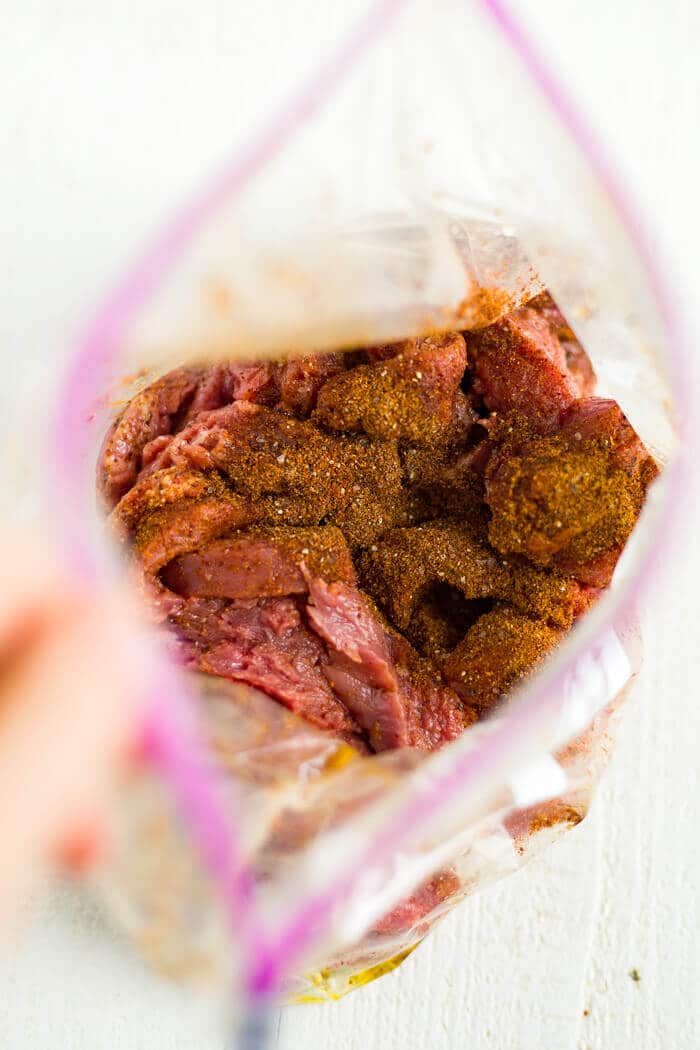
Loin (Short Loin)
The loin is just behind the ribs and underneath the backbone. This muscle is the most tender because the location is not heavily used.
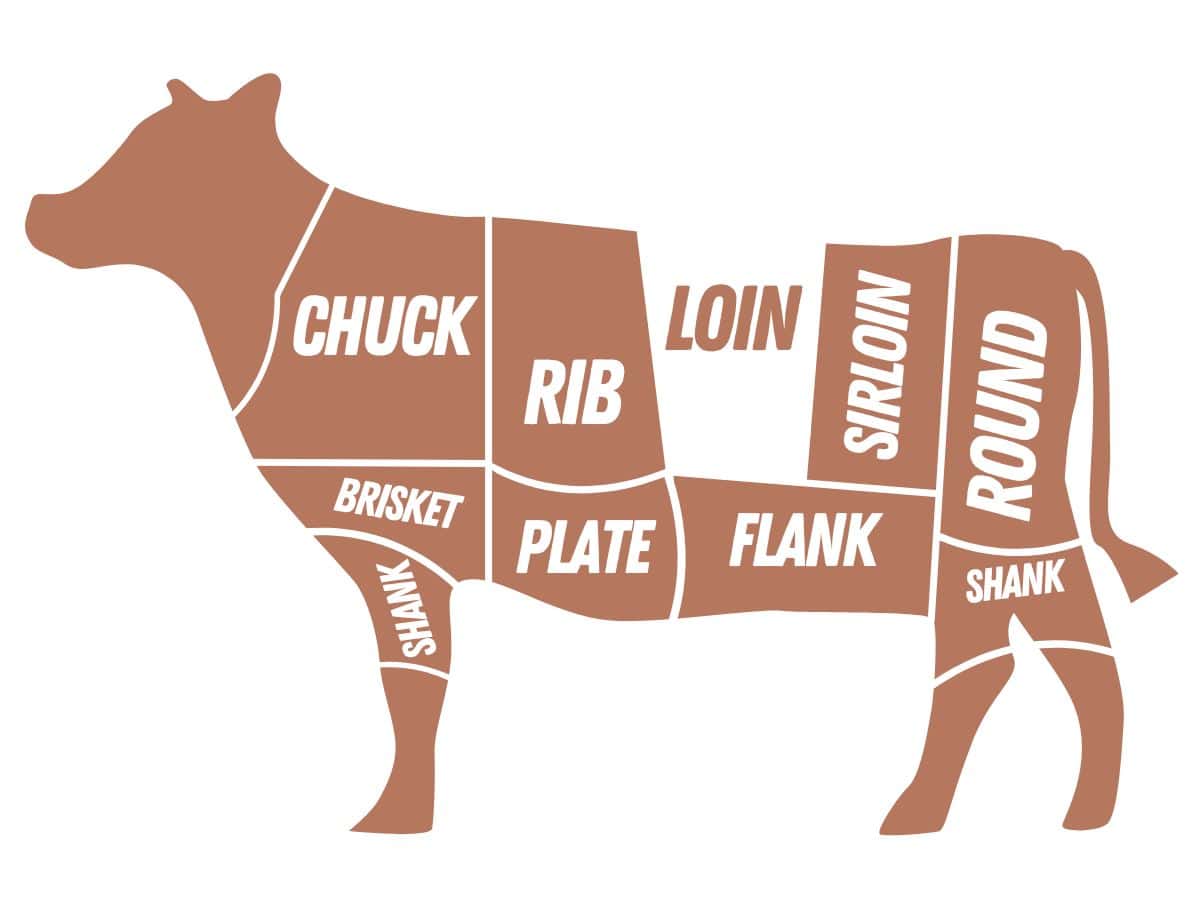
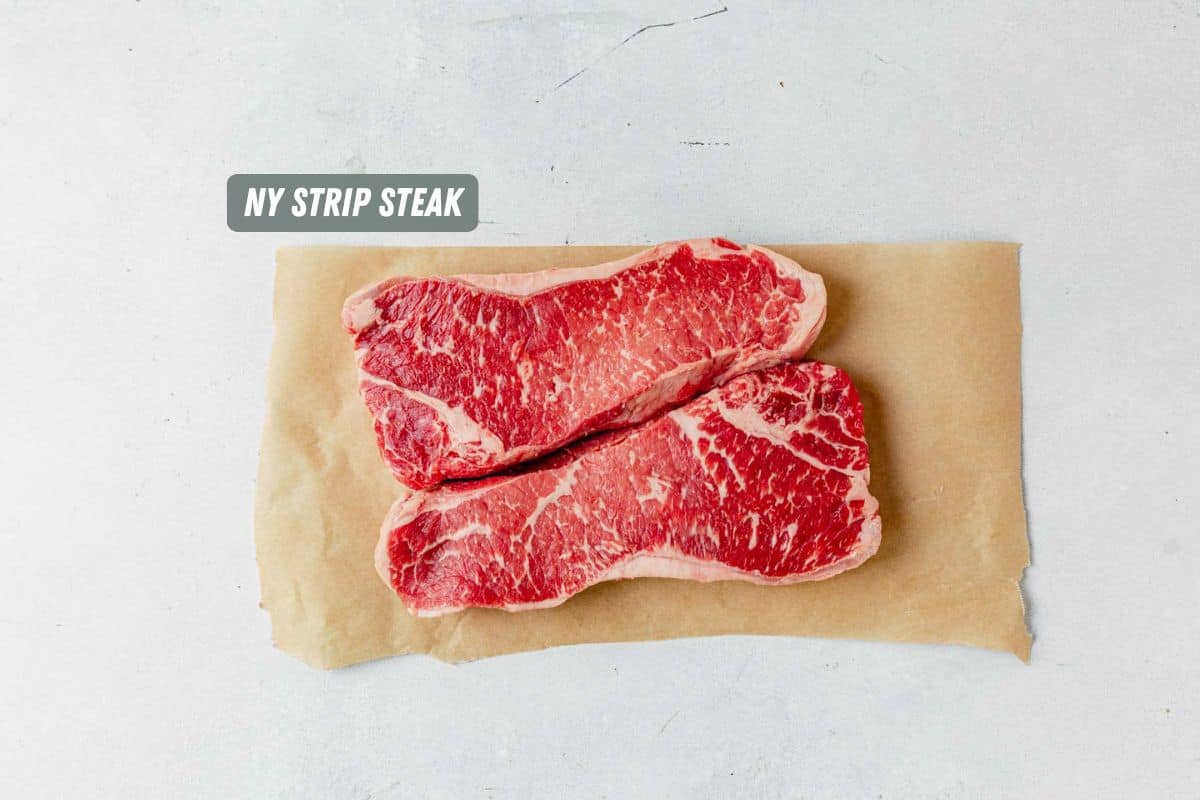
Most common portion cuts: NY strip steak (closest to the rib), T-bone steak (in the center of short loin), and porterhouse steaks (towards the back). It’s interesting to note, if the tenderloin is removed, there can’t be a T-bone or porterhouse steak from the cow because those cuts include part of the tenderloin. The tenderloin is also part of this primal and extends from the short loin back into the sirloin. This is often cut into the ultra-tender filet mignon.
Cooking methods: these cuts can dry out quickly, so dry heat cooking, specifically the grill or broiler, are best.
Loin Recipes
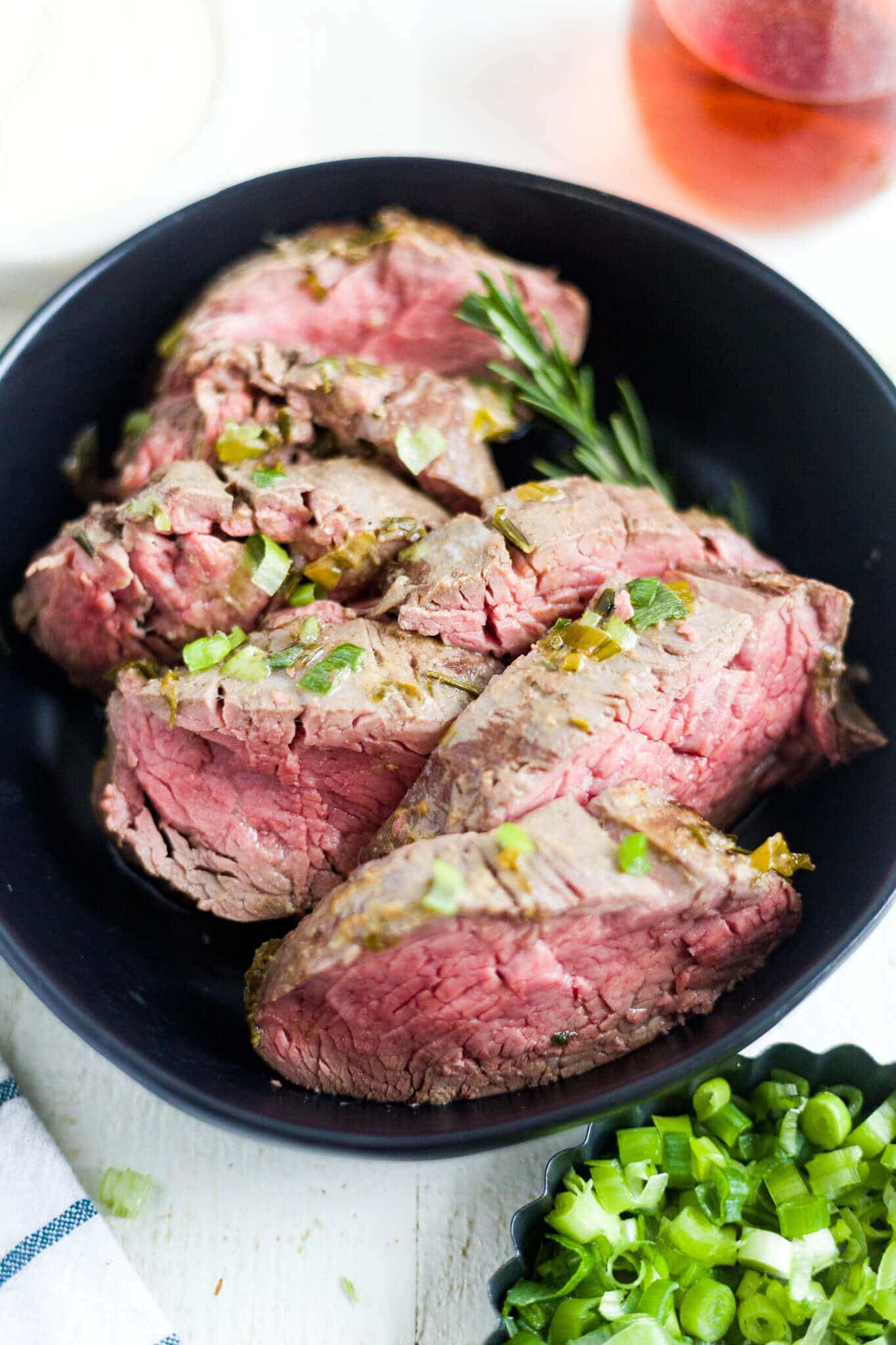
Sirloin
This primal is just behind the short loin and is least tender in comparison, but some argue it has more flavor. It’s separated by the long tenderloin into the top sirloin and bottom sirloin.
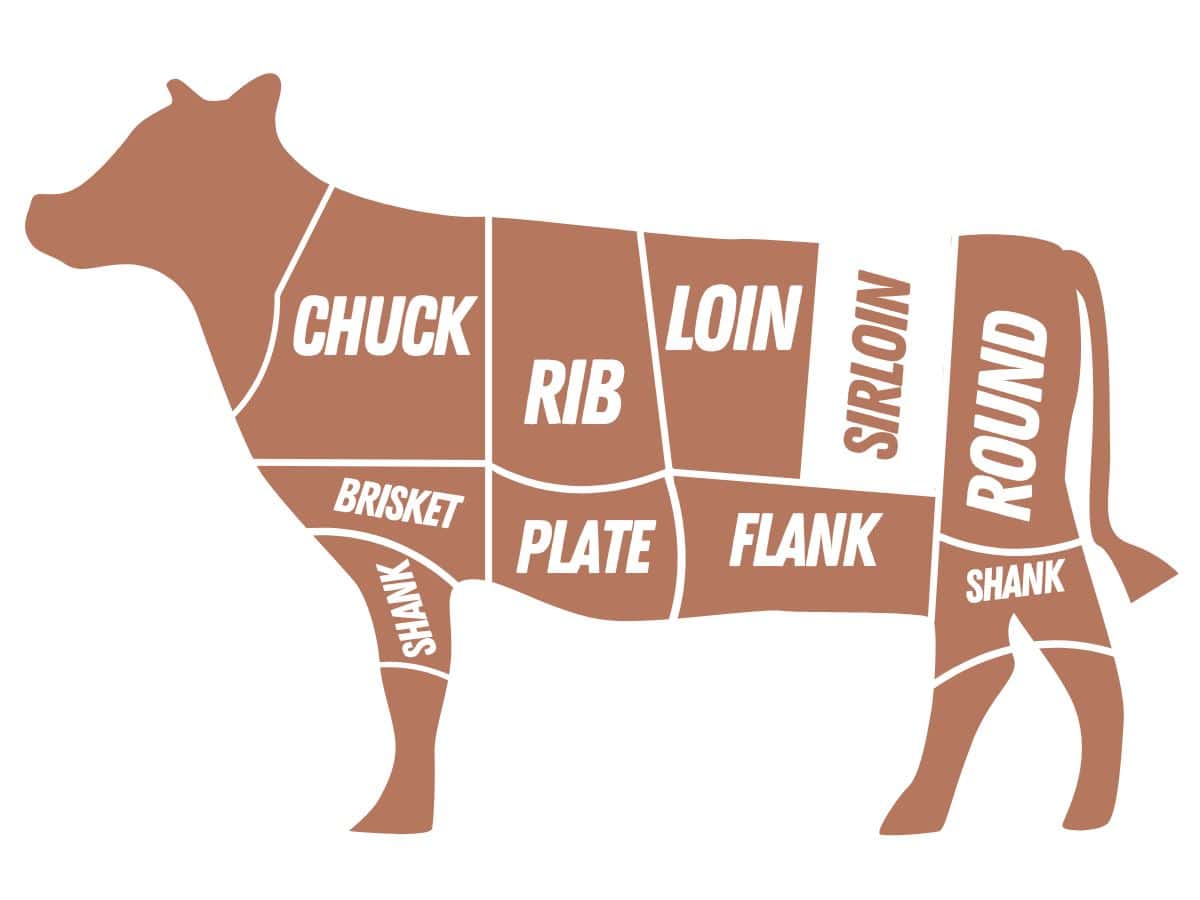
The most common portion cuts: center cut steak, tri-tip steak, and sirloin steak.
Cooking methods: The top sirloin is best for grilling while the bottom cuts can be grilled or roasted.
Sirloin Recipes:
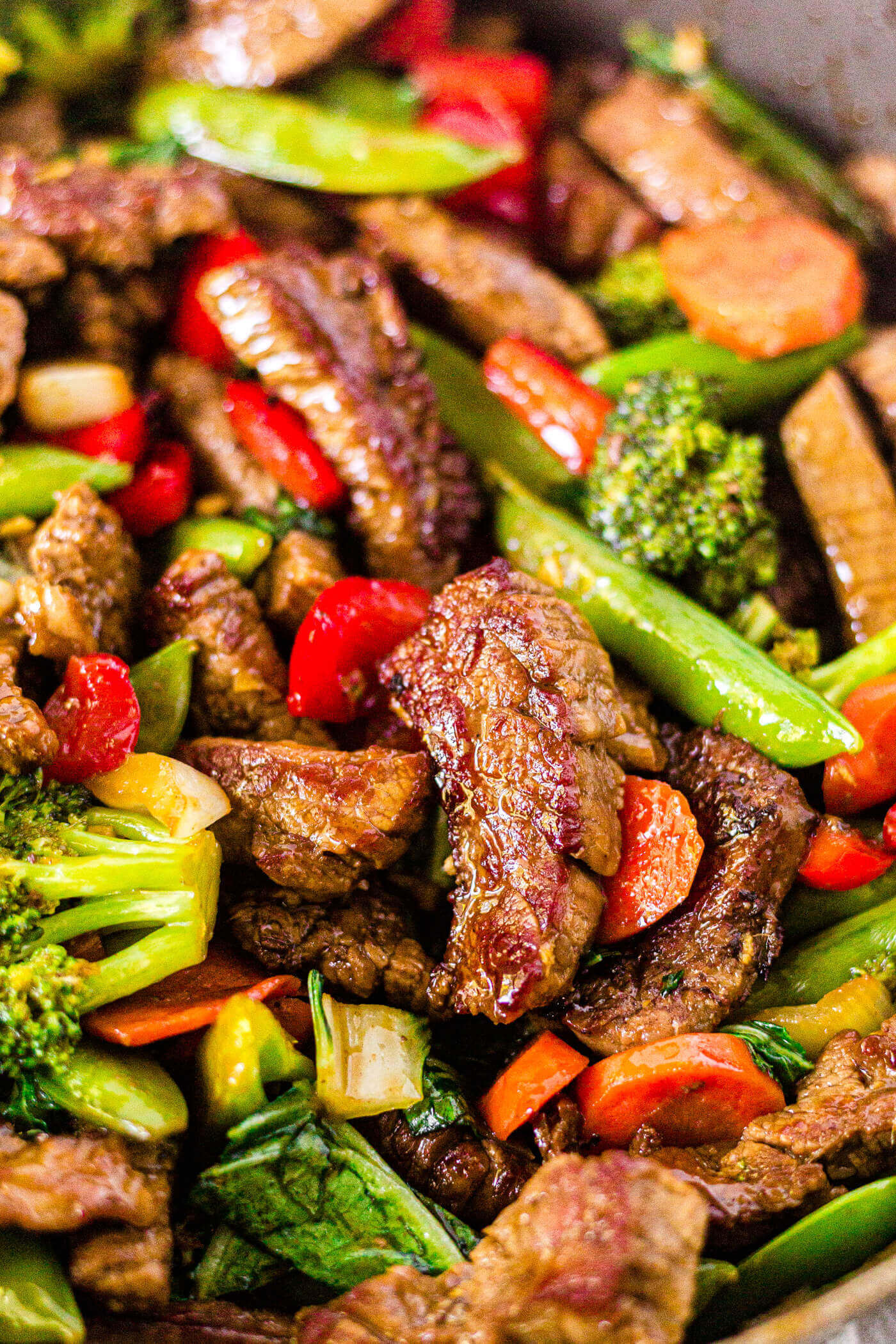
Flank
This small cut of beef is located just below the extra tenderloin area and is home to some of the most flavorful, lean cuts of beef.
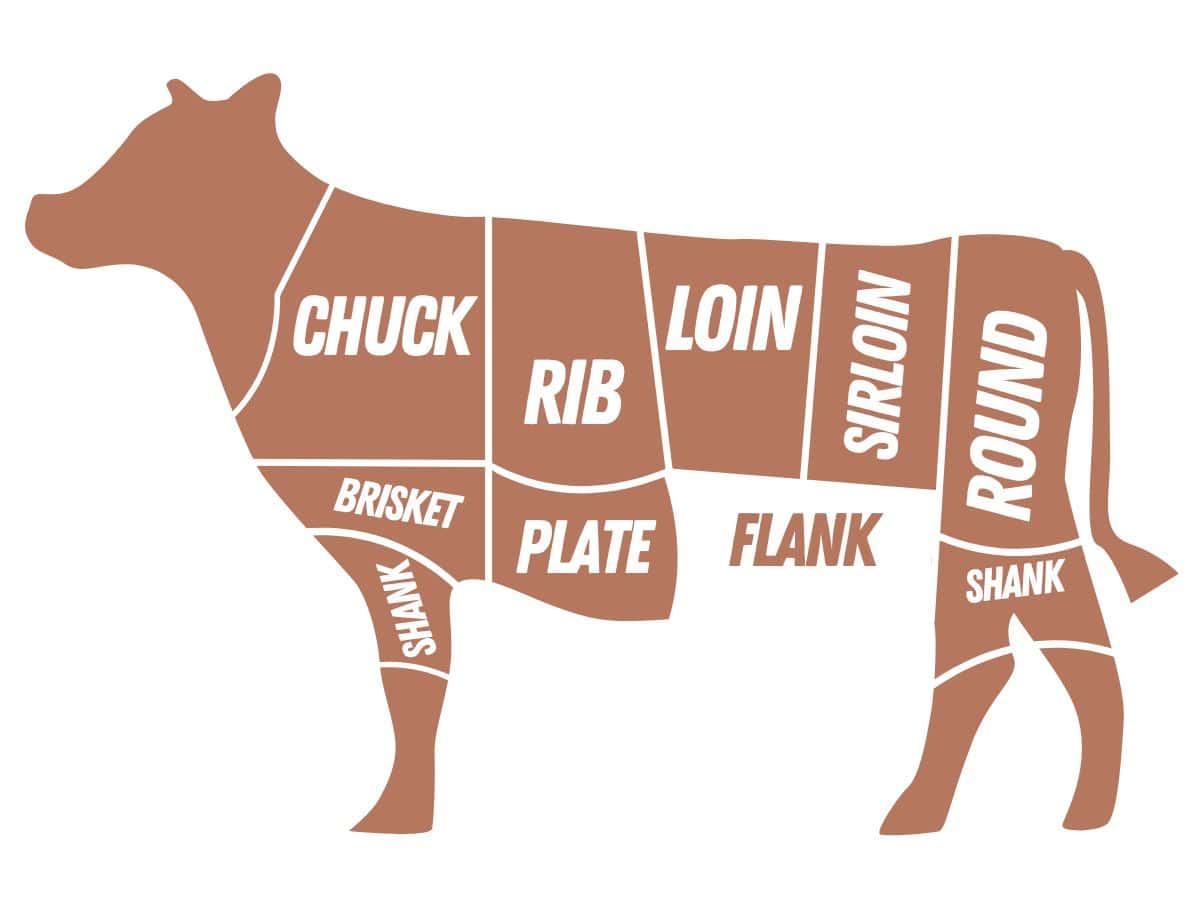
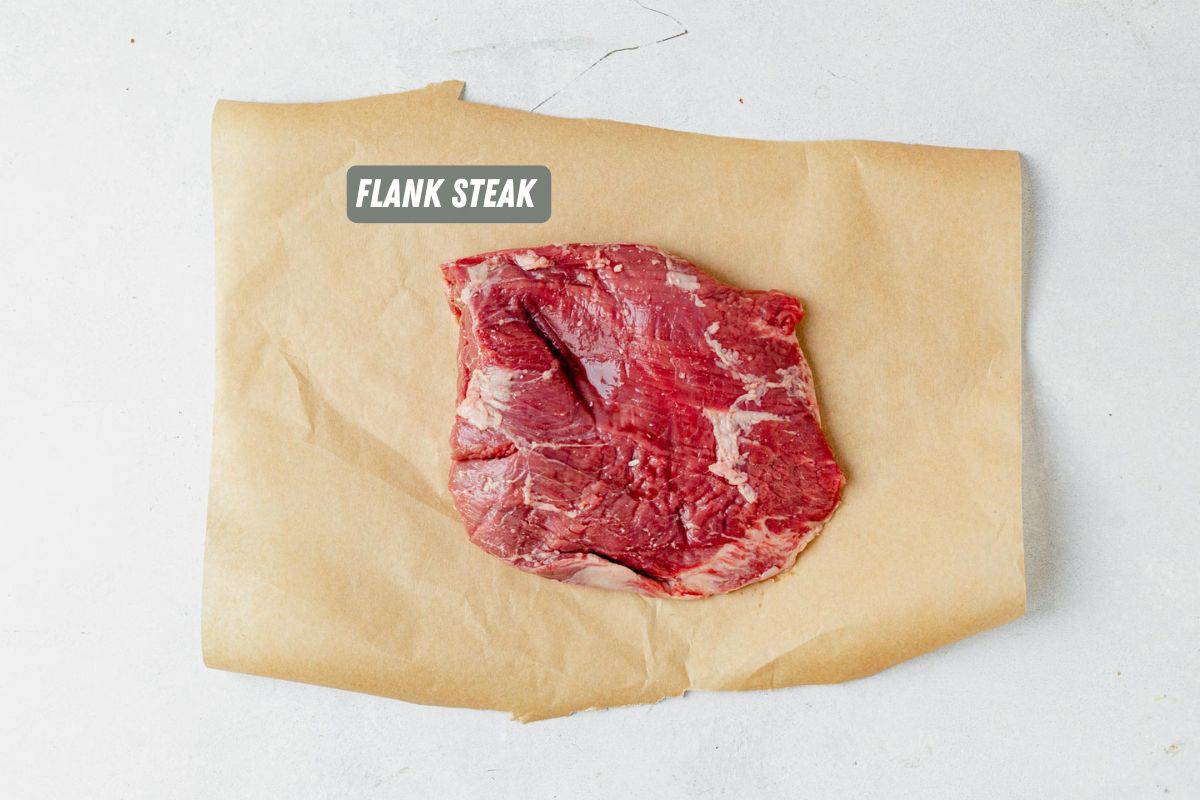
Portion cut: flank steak.
Cooking methods: It has tough muscle fibers so be careful because overcooking this cut or it could end up more tough. Help break down the tough fibers with a steak marinade then grill it quickly over high heat. Don’t forget to cut it against the grain. It can also be used for braising or used in ground beef.
Flank Steak Recipes
- Grilled flank steak with pineapple salsa
- Instant Pot Mongolian Beef
- Mushroom and spinach stuffed flank steak
- Carne asada
- One pan steak and potatoes
- Philly cheesesteak foil packs
- Beef satay with peanut sauce
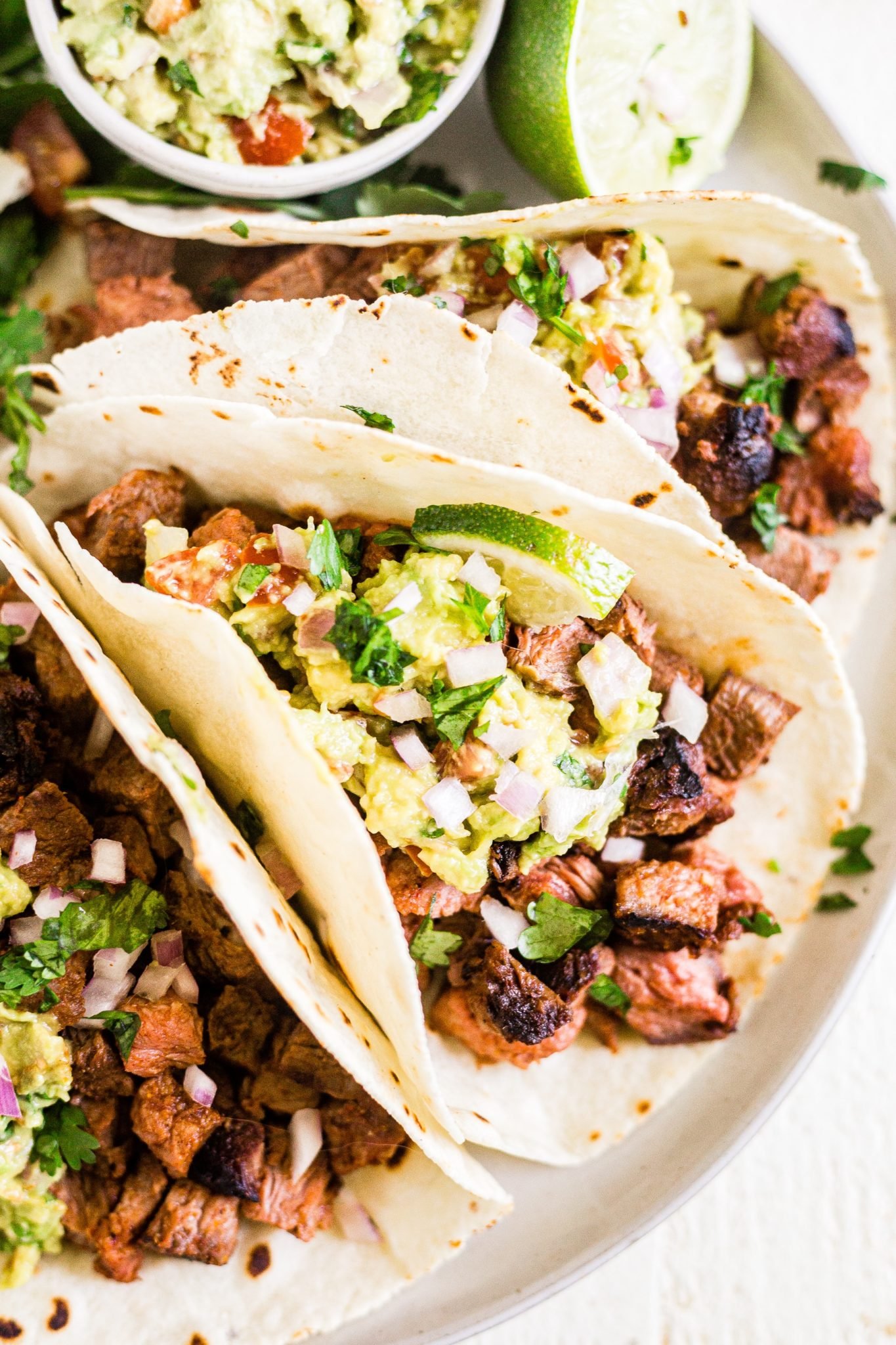
Round
The round primal cut is the very back of the cow and includes the rump and hind legs. These muscles get used quite frequently so the meat can be tough and less tender. These cuts are also some of the most affordable and are typically sold as steaks, roasts, or ground beef.
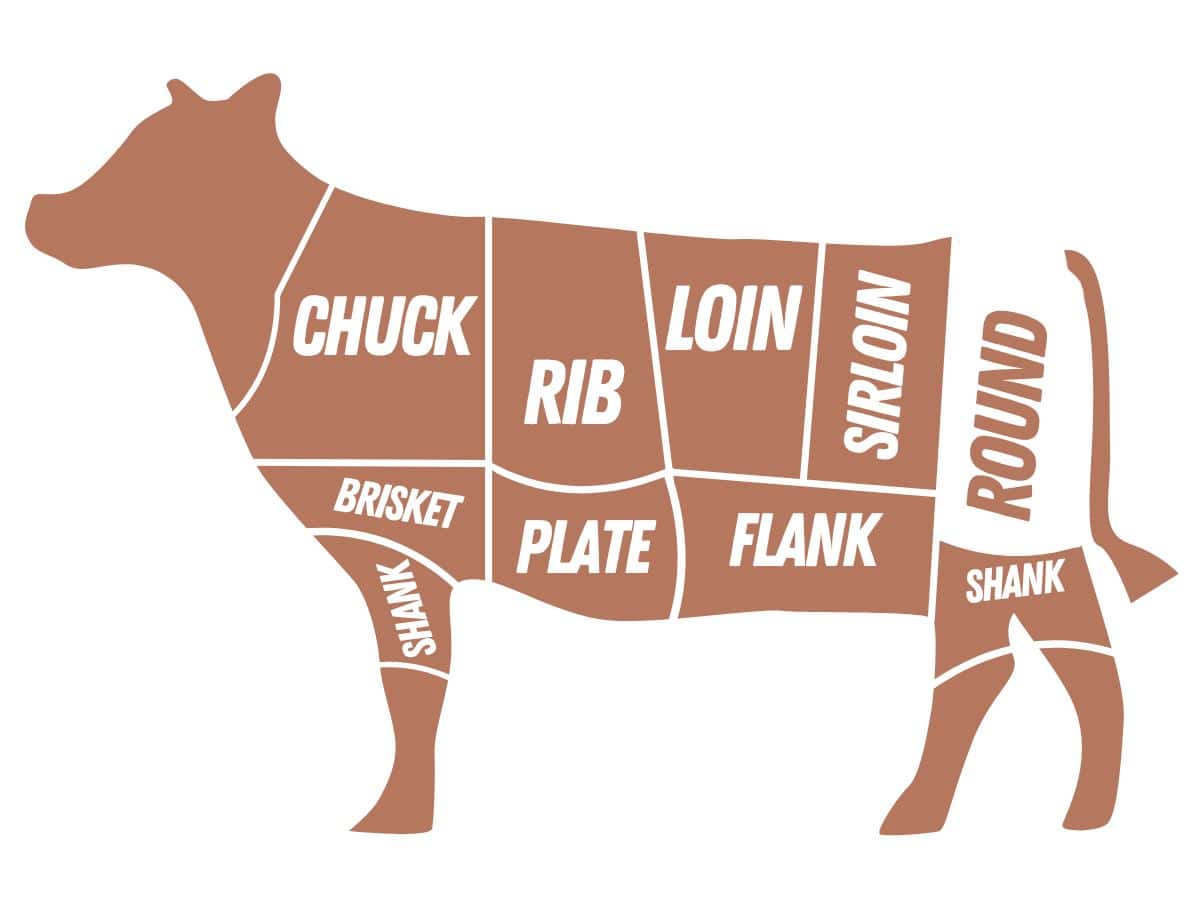
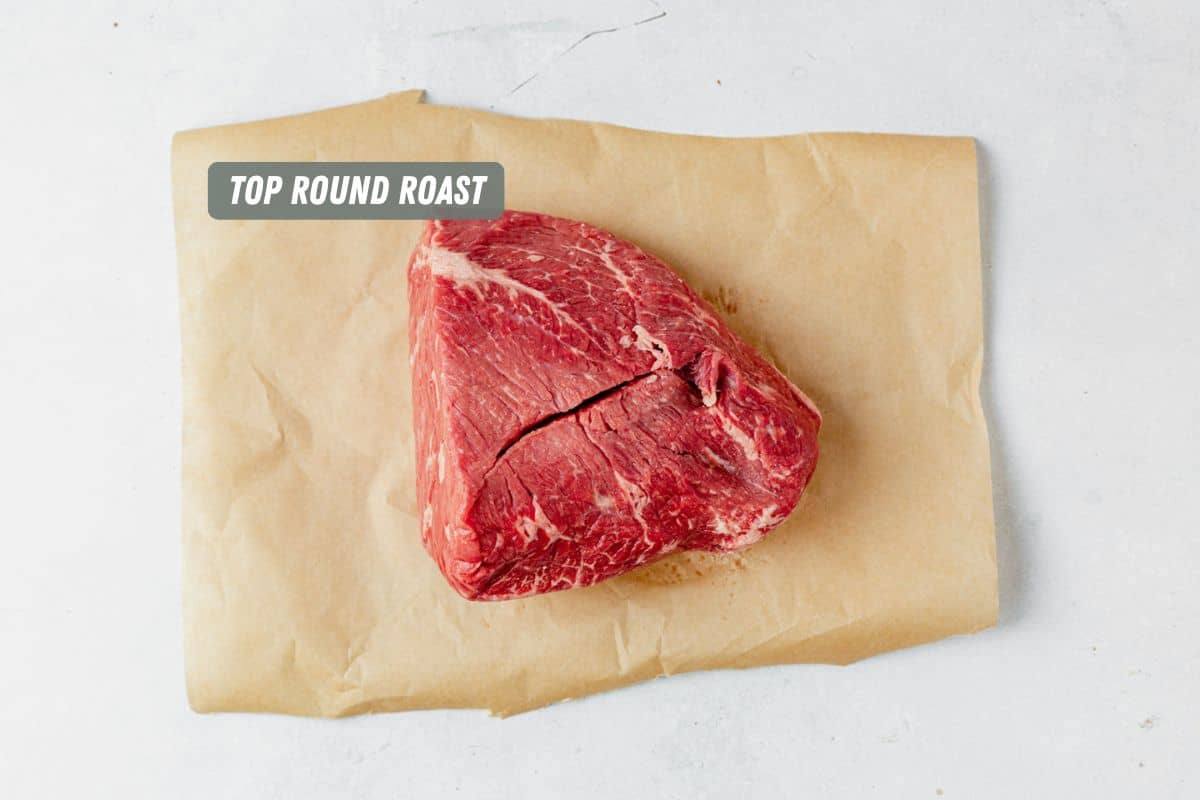
Most common portion cuts: rump roast, eye of round (roast + steak), sirloin tip (roast + steak), and top round (roast + steak)
Cooking methods: these are best for marinating to tenderize them well. Roast them slowly and cut them against the grain for recipes like shaved beef sandwiches.
Beef Round Recipes:
- Open-faced roast beef sandwich
- Classic roast beef
The Most Tender and Tough Cuts of Beef
What are the most tender cuts?
The most tender cuts of beef: these cuts of beef are the ones that are farthest from the horn and the hoof of the cow, including the tenderloin and ribs. Generally, any cut in the loin area is the most tender.
What are the toughest cuts of beef?
The shoulder and leg muscles tend to be the toughest because they’re worked the most. This doesn’t mean they can’t be flavorful! Use a great marinade and cook them correctly for a delicious meal.
Lean Cuts of Beef
Fat equals flavor (usually) when it comes to cooking. However, these lean cuts of beef with less marbling (fat), are not lacking in flavor. They’re full of essential nutrients and tons of flavor. The leanest cuts are tri-tip roast, boneless strip steak, flank steak, and tenderloin (the most tender!)
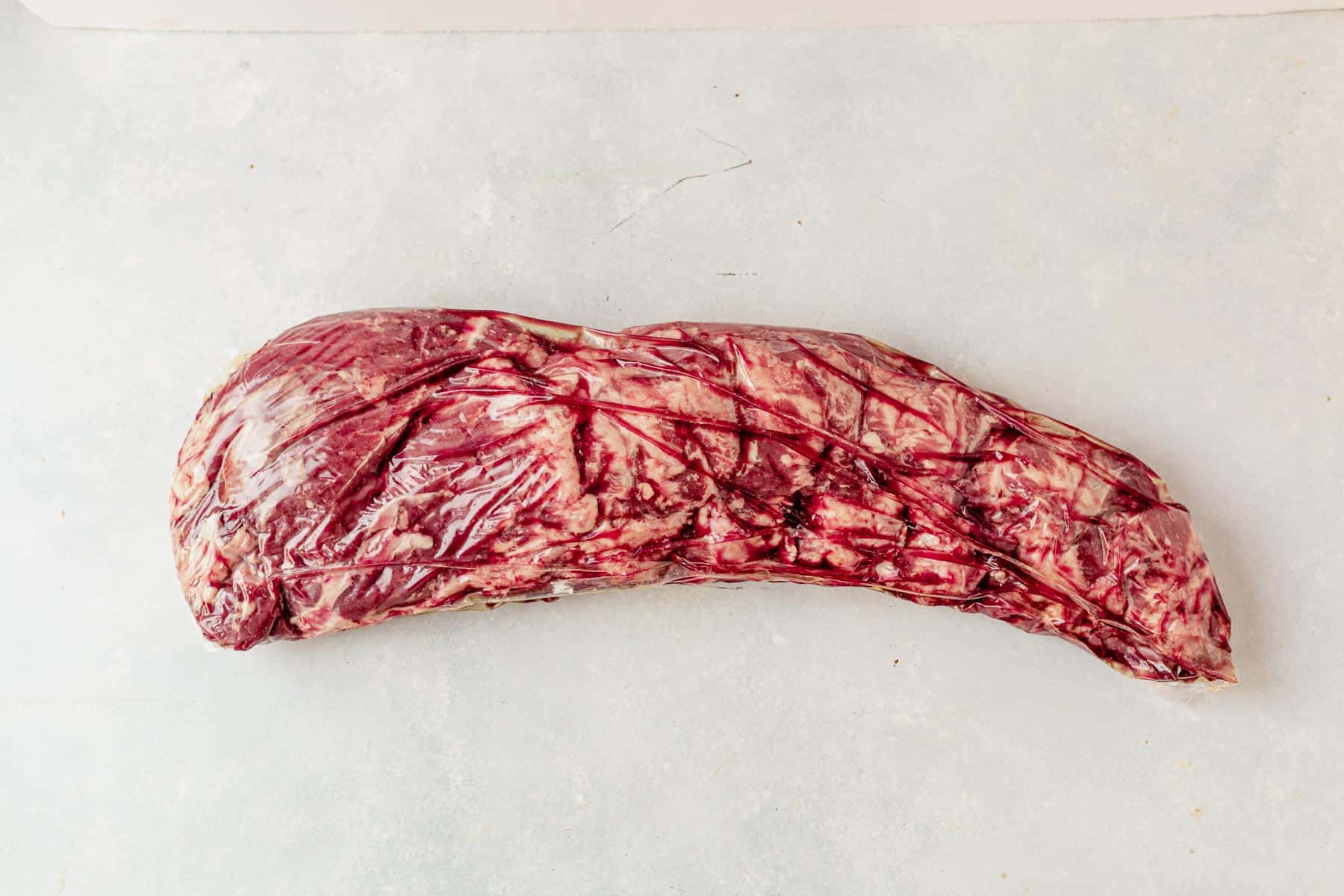
Cheapest and Most Expensive Cuts
Expensive: The most expensive cut is the tenderloin. Any cut of beef from the loin primal is going to be your most expensive because it’s the most tender and desirable. This makes it great for holidays.
Cheapest: The majority of the most affordable cuts of beef come from the round (hind) part of the cow because they’re the least tender. Here are more of the most affordable cuts of steak and how to prepare each.
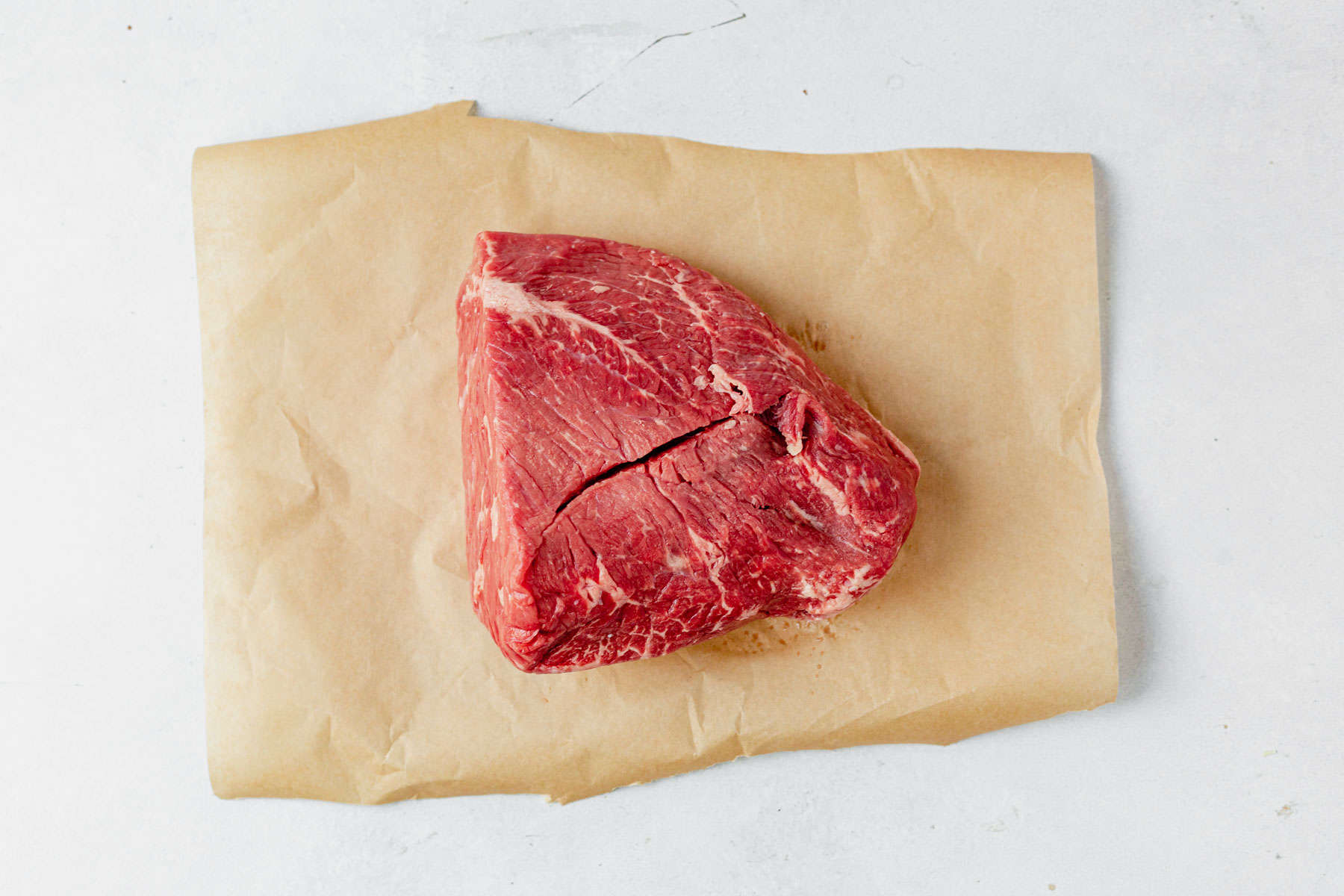
Best Cuts by Cooking Method
Best cuts for slow cooking
The longer these cuts cook, the richer in flavor and texture they become. These cuts of beef do well low and slow all day long. Set it and forget it! Here’s a guide to braising and slow-cooking basics.
- Chuck roasts: arm roast, 7-bone, chuck tender, chuck eye, blade chuck
- Top blade
- Cross rib
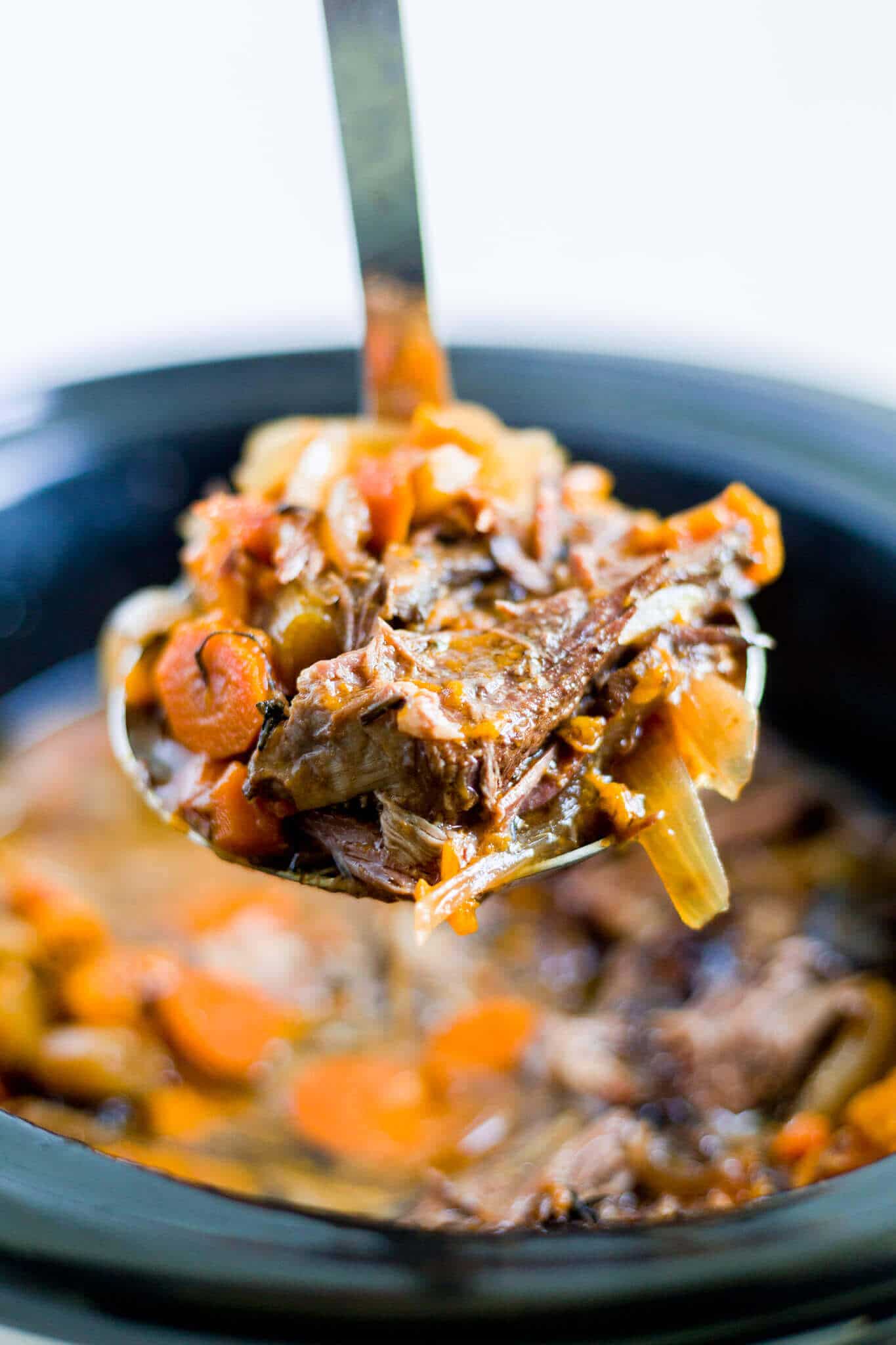
Best cuts for oven roasting
Just season these cuts and let the oven do the rest. Here are the cuts of beef that do well in the oven. The majority of them are larger cuts of roasts! Here’s a bit more information about each cut for roasting and a guide to oven roasting basics.
- Tenderloin roast (beef tenderloin deluxe and tenderloin
- Ribeye roast: lots of marbling makes it a great one for holidays
- Tri-tip roast
- Bottom-round roast
- Eye or round roast
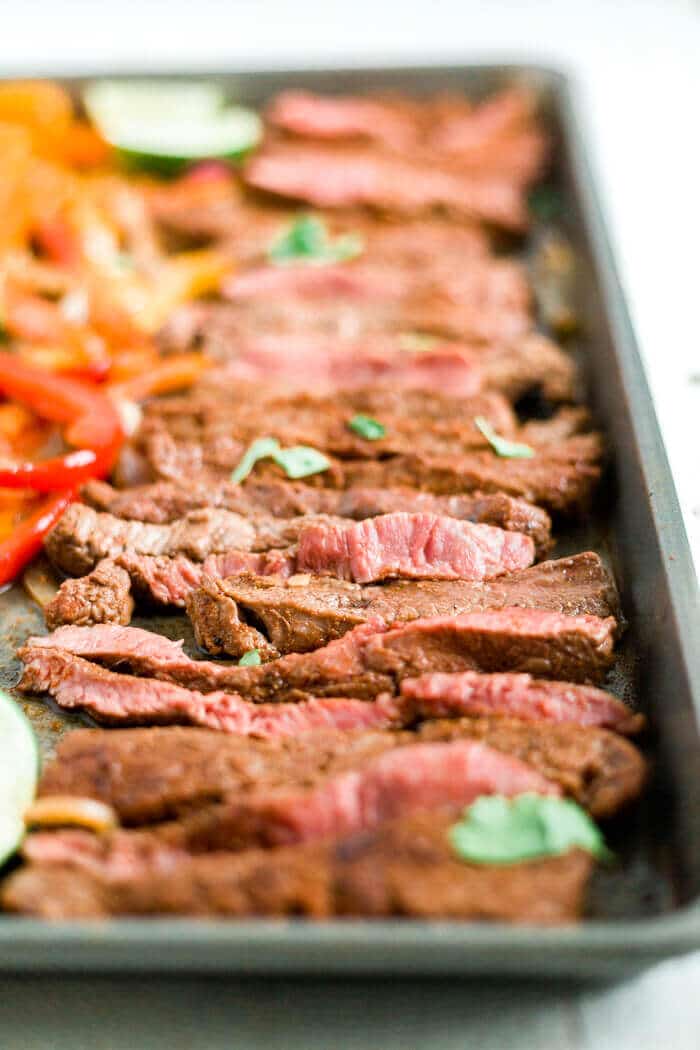
Best cuts for grilling
This is probably the most popular cooking method when it comes to beef. Cooking over an open flame at high heat results in a flavorful and tender piece of beef or steak. Use our guide for beef doneness and an instant-read thermometer to cook your beef, especially steaks, perfectly.
- Steaks: strip steak, top sirloin, flank steak, t-bone, ribeye, tenderloin, petite sirloin, porterhouse, flat iron steak
- Inside and outside skirt
- Roasts: tri-tip (slice against the grain)
- Ground beef
- Kabobs
Follow these beef grilling basics in the summer when you’re ready to fire up the grill.
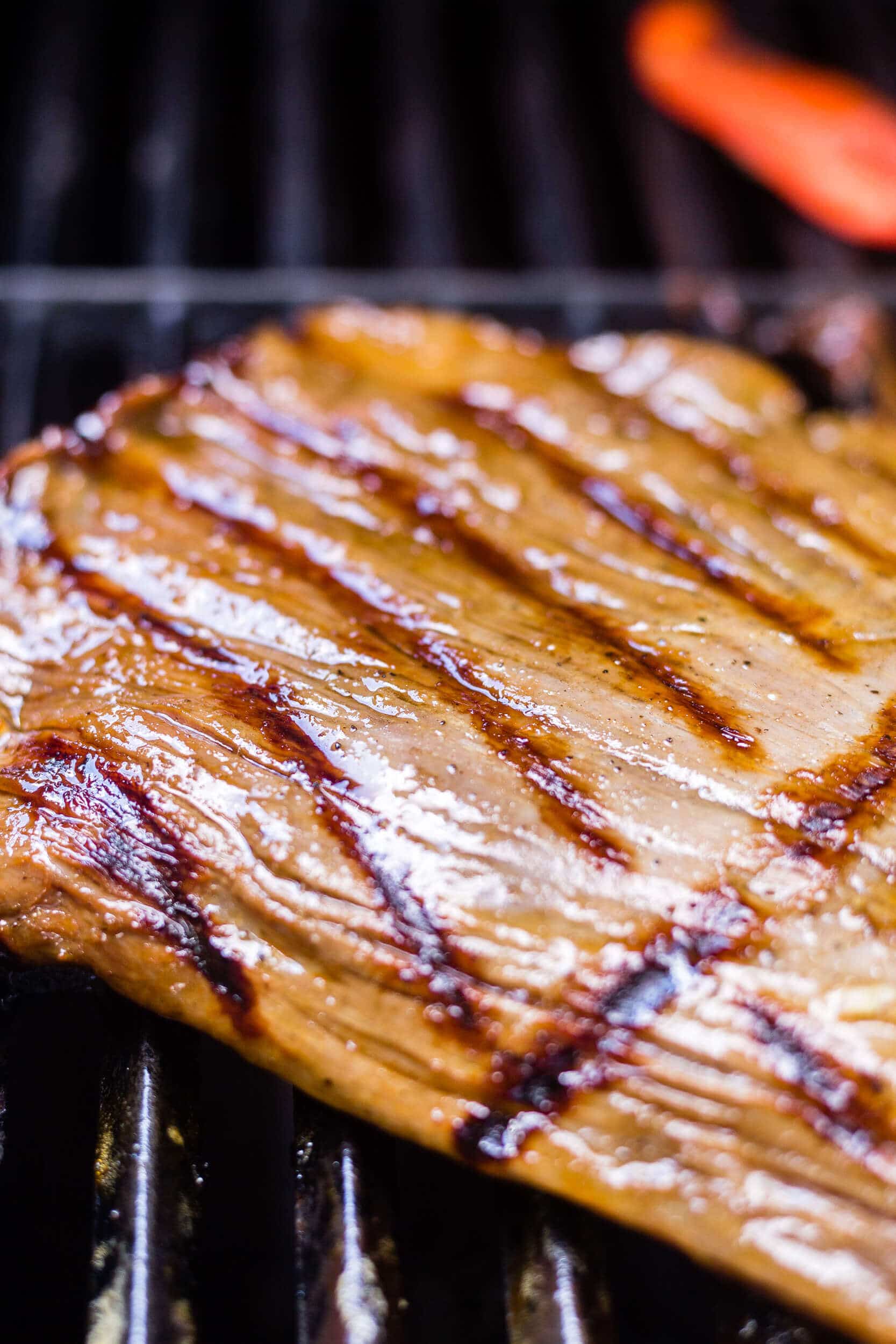
Best cuts of beef to stir fry
This one-pan meal is popular in Asian-inspired cuisine and is full of thinly sliced beef, sauce, and vegetables. That means you need a cut of beef that does well in a marinade and can be thinly sliced. The most popular stir fry steaks include top sirloin steak, skirt steak, flank steak, and sirloin tip. We use the flank steak in our veggie-packed steak stir fry.
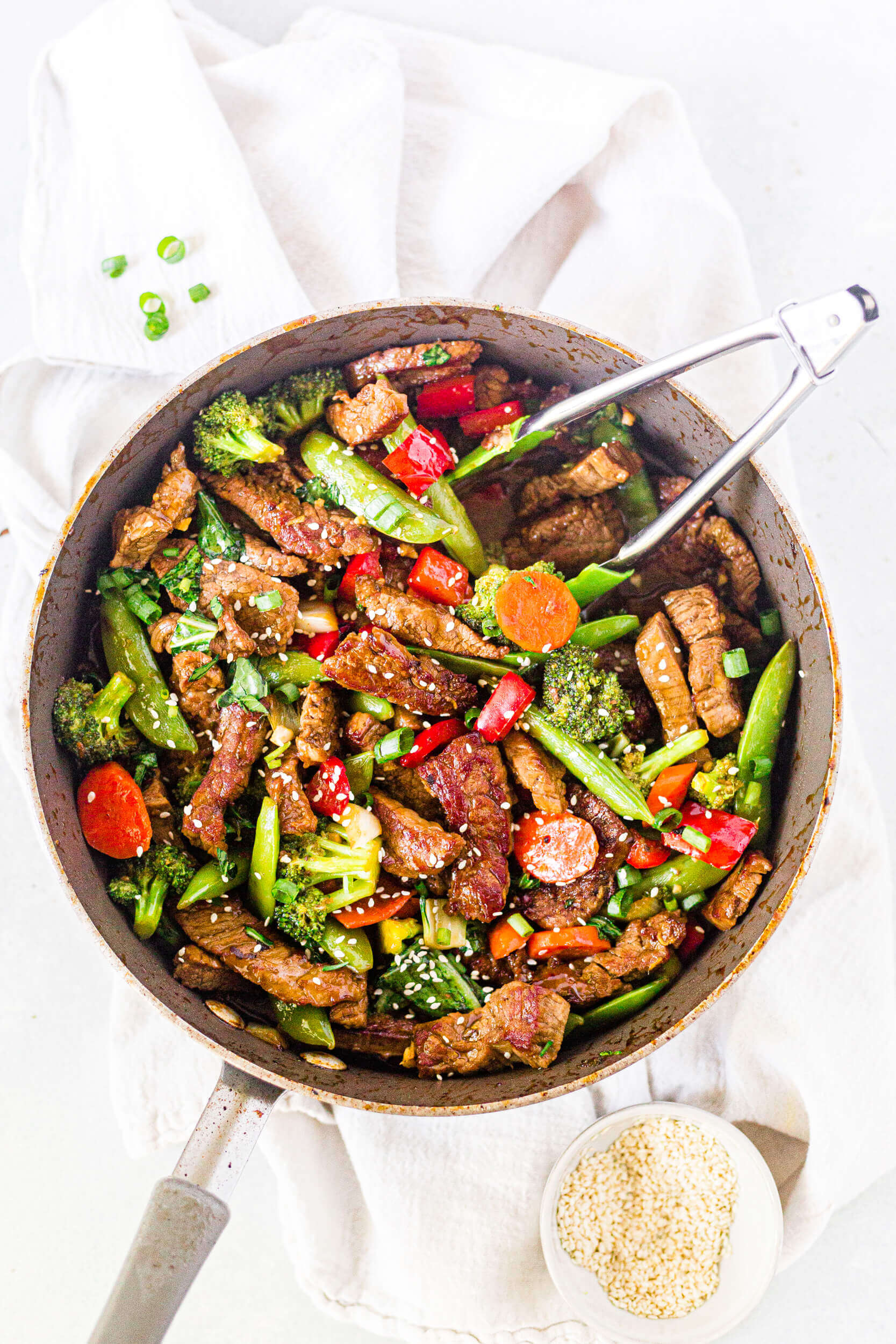
Best cuts of beef to smoke
This popular technique delivers smoky flavors and extra tender beef. It’s most commonly known and referred to as barbecue. Large cuts like brisket, roasts, and ribs are great for smoking all day. Go over the smoking basics before you get started.
Best Cuts by Recipe Type
Some of the most popular recipes made with steak have a few options when it comes to what cuts to choose from. Here are the best cuts of beef for your favorite meals.
- Corned beef: this dish is made from the brisket (chest) of the cow, and more specifically the brisk flat half. It’s salt-cured in brine and either slow-roasted or made in the slow cooker. Here is everything you need to know about corned beef.
- Kabobs: the top sirloin steak is the ideal cut of beef for kabobs because it’s tender, lean, and holds up well to a marinade. The center-cut top sirloin is especially good. We used sirloin in our beef satay, which is similar to a kabob!
- Beef stew: stew meat usually comes from tougher, larger parts of the animal. The most common is the chuck (like in our slow cooker beef stew), but you can also use top and bottom round roast, tips, and even some steak.
- Pot roast: tough meat, like the chuck roast, makes for the best pot roast. These are the leanest cuts with a lot of connective tissue, which is why we chose it for our Instant Pot Pot Roast. All that collagen cooks down slowly, tenderizing the beef with a rich flavor. Brisket and round roast are also great for pot roast, but they’re better sliced rather than pull-apart-with-a-fork.
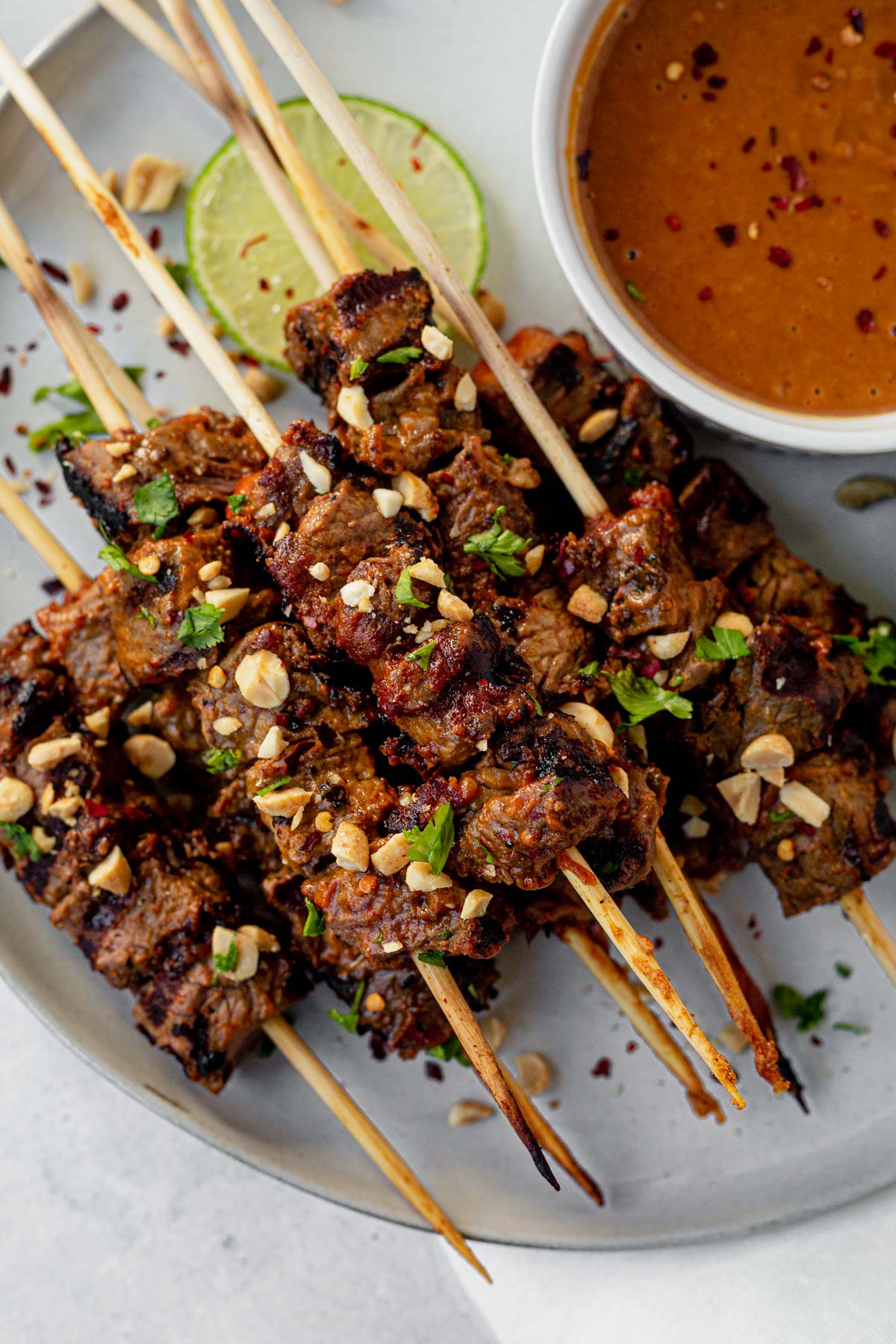
Check out our entire beef category for tons of recipes with beef as the main ingredient. We also created a guide to the internal temperature of beef so you can cook it perfectly every time.
This post is sponsored by The Ohio Beef Council. All thoughts and opinions are my own. Thank you to brands like them that believe in our website and allow us to continue to share free recipes with you.
This post may contain affiliate links. Read our disclosure policy.

